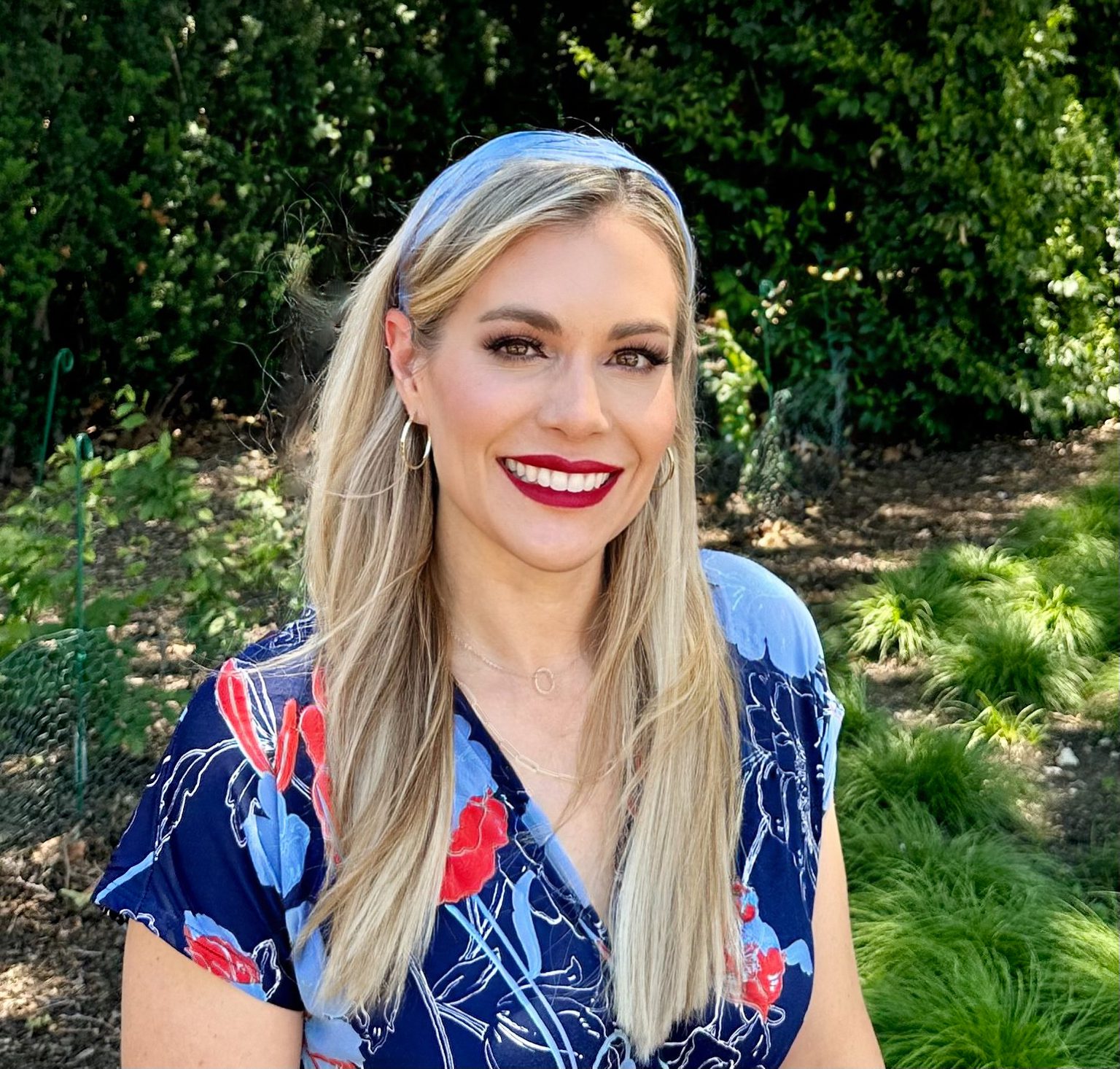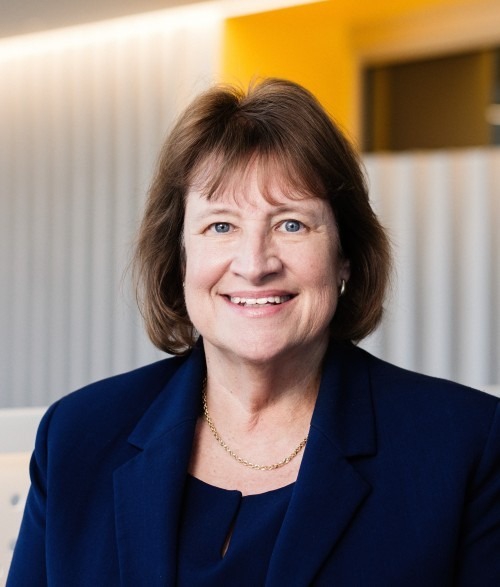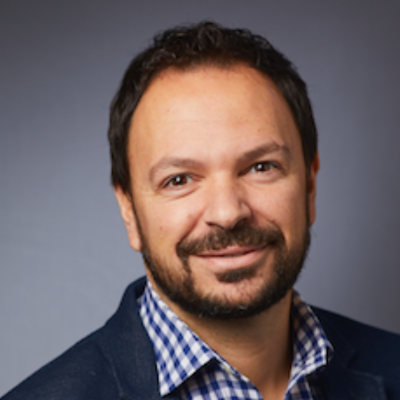
Kristine Callis-Duehl, Ph.D.
Driemeyer Executive Director of Education, The Donald Danforth Plant Science Center
The Graduate School of the Stowers Institute for Medical Research


Driemeyer Executive Director of Education
The Donald Danforth Plant Science Center
Kristine Callis-Duehl, Ph.D., is the Driemeyer Executive Director of Education at the Donald Danforth Plant Science Center. Serving as a board member for the St. Louis Academy of Sciences, the St. Louis Public’s Collegiate School of Science and Medicine and Vice-Chair for the Higher Education Consortium of St. Louis, Callis-Duehl brings together networks of science and education experts to create institutional and systems change. As affiliated faculty at the University of Missouri-St. Louis, St. Louis University and the University of Illinois, her positions allow for cross-institutional graduate students to collaborate together on projects at the Danforth Center. She recently received the Impact Award from the Botanical Society of American for her work on engaging historically excluded communities in plant science research and fostering opportunities for students to pursue STEM careers.

President
Rockhurst University
Ph.D., Univeristy of Iowa
Sandra Cassady, Ph.D. is the 15th president of Rockhurst University, where she began her tenure in 2022 as the first lay and woman president in the institution’s history. Under her leadership, Rockhurst has expanded academic programs, launched new athletic teams, strengthened public- and private-sector partnerships, and advanced major campus projects, including a new chapel and community center renovation. She also helped complete the university’s most recent capital campaign and led the development of Rockhurst by 2029, the institution’s strategic plan.
Cassady brings more than 30 years of experience in higher education as a faculty member and senior administrator, including leadership roles at St. Ambrose University and the University of Iowa. A nationally recognized scholar in physical therapy and exercise science, she has received multiple awards for teaching, research, and service and has held editorial roles with leading professional journals. She holds a bachelor’s degree in biology from the University of Northern Iowa and a master’s degree in physical therapy and a Ph.D. in exercise science from the University of Iowa.
She currently serves on several civic and regional boards, including the Greater Kansas City Chamber of Commerce, and was named to the Kansas City Business Journal’s 2025 class of Women of Influence.

Investigator and President of the Graduate School
Stowers Institute for Medical Research
Development and Regeneration, Genetics and Genomics, Evolutionary Biology, Systems Biology
Evolution and Model Systems; Laboratory Rotation; Thesis laboratory
Matt Gibson, Ph.D., is a developmental biologist and an Investigator at the Stowers Institute. Gibson joined Stowers in 2006 and was named President of the Graduate School in 2024 after serving as Dean since 2019.

Fergus F. Wallace Professor of Genetics
Yale School of Medicine
Antonio Giraldez, Ph.D., studied Chemistry and Molecular Biology at the University of Cadiz and the University Autonoma of Madrid. As an undergraduate, he worked with Gines Morata at the CBM in Madrid. Giraldez conducted his PhD research with Stephen Cohen at the EMBL (Heidelberg) (1998-2002) and was a post-doc with Alex Schier at the Skirball Institute (NYU) and Harvard (2003-2006). He joined the Genetics Department at Yale University in 2007. He is currently the Fergus F. Wallace Professor of Genetics and was previously the Chair of the Genetics Department. Antonio is a member of the Yale Center for RNA Science and Medicine, Yale Stem Cell Center, Yale Cancer Center, and is an HHMI Faculty Scholar.

Board Chair
The Graduate School of the Stowers Institute for Medical Research
B.S., Zoology, Ohio University
M.S., Genetics, North Carolina State University
Ph.D., Biochemistry, University of California, Berkeley
Caroline M. Kane, Ph.D., retired from the faculty of the University of California, Berkeley, in 2008 after nearly 30 years in the Department of Molecular and Cell Biology. She is currently a Professor in Residence Emerita, Molecular and Cell Biology. While at Berkeley, she worked with students across the University spectrum: high school, undergraduate, graduate and postdoctoral. She was Head Graduate Student Advisor for the Biochemistry and Molecular Biology Division for many years and, in 1992, helped found the award-winning undergraduate Biology Scholars Program dedicated to increasing the successes of students from traditionally marginalized backgrounds in science, math and engineering. After retirement, she served as Interim Director of the University of California President’s Postdoctoral Fellowship Program 2014-2015.
Kane has received the Chancellor’s Award for Advancing Institutional Excellence, 2007; Leon A. Henkin Citation For Distinguished Service, 2002; Presidential Award for Excellence in Science, Math and Engineering Mentoring (awarded to Coalition for Excellence and Diversity in Math, Science and Engineering of which she was Chair 1995-2009), 1998; Award for Distinguished Service, American Society for Cell Biology, 2012; elected a Berkeley Fellow in 2018; and served on the National Advisory Council, National Center for Minority Health and Health Disparities, 2002-2006. She remains active in promoting the advancement and career goals of students from high school through career entry. She is also very active in issues that impact retirees in higher education, and she has been President, Association of Retirement Organizations in Higher Education, 2017-2019; Chair, Council of University of California Emeriti Associations, 2018-2020; Past President, University of California, Berkeley Emeriti Association, 2015-2017. She also is Co-Founder of The Cell: An Image Library, with the American Society for Cell Biology, 2009-2012.
Kane received her B.S. in zoology from Ohio University followed by an M.S. in genetics from North Carolina State University. She received her Ph.D. from the Department of Biochemistry under Stuart Linn, Ph.D., at the University of California, Berkeley. Her postdoctoral work was with Harold Weintraub, Ph.D., at the Fred Hutchinson Cancer Center in Seattle. She returned to Berkeley in 1991 and remained there for her entire faculty career.

Professor of Neurology, President Emeritus, and Dean of Medicine Emeritus
Northeast Ohio Medical University
M.D., Rush Medical College
J.D., University of Chicago
M.B.A., University of Kentucky
Dr. Lois Margaret Nora is Professor of Neurology, President Emeritus, and Dean of Medicine Emeritus at Northeast Ohio Medical University. Passionate about enhancing health professionals’ education in order to improve the care of patients and the overall health of our communities, Nora’s career is notable for community engagement and organizational transformation achieved by fostering high performing teams, building consensus and seeking diverse stakeholder engagement.
From 2012-2018, she served as President and Chief Executive Officer of the American Board of Medical Specialties (ABMS). During her tenure, ABMS championed new models for continuing certification including longitudinal assessment; worked to increase collaborative efforts across the profession to maintain high standards in certification; and expanded international programs. In addition, the organization initiated the “Continuing Board Certification: Vision for the Future” initiative, establishing a multi-stakeholder Commission that released a final report of comprehensive recommendations for the future of continuing certification in February 2019.
Nora was a 2018 Fellow in the Advanced Leadership Initiative at Harvard University where her work focused on accreditation as a lever for positive change in education, both nationally and internationally. While at Harvard, she also continued work on a history of women in medicine through the lens of our systems of medical education and professional self-regulation.
She currently serves on the Steering Committee of the National Academy of Medicine’s Action Collaboration Clinician Well-being and Resilience, the Advisory Board of the National Center for Interprofessional Education and Practice, and the Board of Visitors of the University of Mississippi School of Pharmacy. She has also served as the President of the American Association of Neuromuscular and Electrodiagnostic Medicine, on the US Health Resources and Services Administration Council on Graduate Medical Education (COGME, Chair 2018-19), on the Board of Directors of the Association of American Medical Colleges, and as a trustee of the Margaret Clark Morgan Foundation.
Her honors include the American Medical Women's Association President's Recognition Award, the Association of Medical Colleges Group on Educational Affairs Merrel Flair Award in Medical Education, the New Horizons Award from the Liaison Committee on Medical Education and the Phillips Medal of Public Service from the Ohio University College of Osteopathic Medicine, and four honorary degrees.
Nora received her medical degree from Rush Medical College, a law degree and certificate in clinical medical ethics from the University of Chicago and a Master of Business Administration from the University of Kentucky.

Director of the Marine Biological Laboratory and Professor
University of Chicago
A.B., Biology, Princeton University
Ph.D., Biology, Stanford University
Nipam Patel, Ph.D., is the Director of the Marine Biological Laboratory (MBL) and a Professor at the University of Chicago. He joined the MBL in 2018 from University of California, Berkeley, where he was Professor and Co-chair of the Department of Molecular and Cell Biology and Professor in the Department of Integrative Biology. Patel is the 20th scientist to serve as MBL Director since its founding in 1888.
A longtime member of the MBL community, Patel has taught in the MBL Embryology course since 2001 and served as course co-director from 2007 to 2011. He is a leading scholar in modern evolutionary and developmental biology with specific focus on the evolution of body patterning and segmentation, regeneration of the germline, and structural coloration. His scientific expertise encompasses the development of novel, genetic model organisms for biological study, which can reveal much about human biology; and the application of advanced imaging technologies to probe the fundamental dynamics of living systems.
Patel is an elected fellow of the American Association for the Advancement of Science and has been awarded numerous honors, including the Schubert Endowed Chair and the William V. Power Endowed Chair at UC Berkeley, the McKnight Scholars Neuroscience Fellowship Award, and an NSF Predoctoral Fellowship.
Patel received an A.B. in biology from Princeton University and a Ph.D. in biology from Stanford University.

President, Chief Scientific Officer, and Investigator
Stowers Institute for Medical Research
Development and Regeneration, Genetics and Genomics, Evolutionary Biology, Molecular and Cell Biology
Cell Biology; Evolution and Model Systems; Laboratory Rotation; Thesis Laboratory
Alejandro Sánchez Alvarado, Ph.D., is the President and Chief Scientific Officer of the Stowers Institute. Alejandro joined the Institute in 2011, was named its Scientific Director in 2019, and named Executive Director and Chief Scientific Officer in 2021. In 2023 he was named President and Chief Scientific Director.